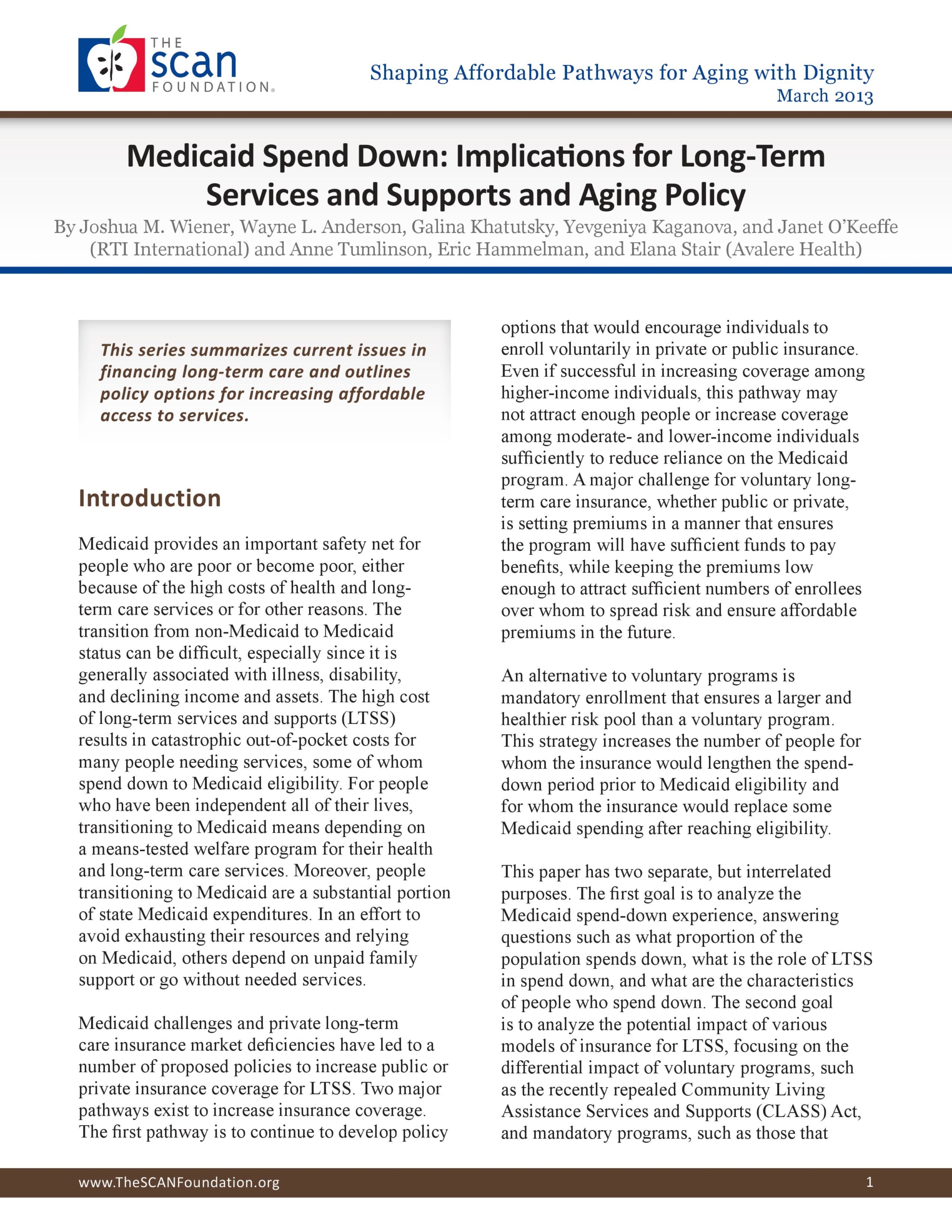Medicaid Spend Down: Implications for Long-Term Services and Supports and Aging Policy
summary
For people who have been independent all of their lives, transitioning to Medicaid means depending on a means-tested welfare program for their health and long-term care services. Moreover, people transitioning to Medicaid are a substantial portion of state Medicaid expenditures. In an effort to avoid exhausting their resources and relying on Medicaid, others depend on unpaid family support or go without needed services.
Date Updated: 03/20/2013Introduction
Medicaid provides an important safety net for people who are poor or become poor, either because of the high costs of health and long-term care services or for other reasons. The transition from non-Medicaid to Medicaid status can be difficult, especially since it is generally associated with illness, disability, and declining income and assets. The high cost of long-term services and supports (LTSS) results in catastrophic out-of-pocket costs for many people needing services, some of whom spend down to Medicaid eligibility. For people who have been independent all of their lives, transitioning to Medicaid means depending on a means-tested welfare program for their health and long-term care services. Moreover, people transitioning to Medicaid are a substantial portion of state Medicaid expenditures. In an effort to avoid exhausting their resources and relying on Medicaid, others depend on unpaid family support or go without needed services.
Download the publication for all visuals and complete references.
Continue Reading
This policy brief provides background on the historical development of benefit eligibility triggers in the private long-term care insurance market. Understanding how these triggers came into being can provide important information to those charged with implementing the CLASS Plan.
This policy brief provides information about how long-term care insurers implement benefit eligibility triggers in the private insurance market. The way in which companies have operationalized benefit eligibility triggers can inform the development of regulations for the CLASS Plan.
This policy brief provides information on the benefit eligibility assessment process in the private long-term care insurance industry. It focuses on how long-term care insurers use the information in the adjudication process, who is involved in the process, and how activities of daily living and cognition are assessed.


